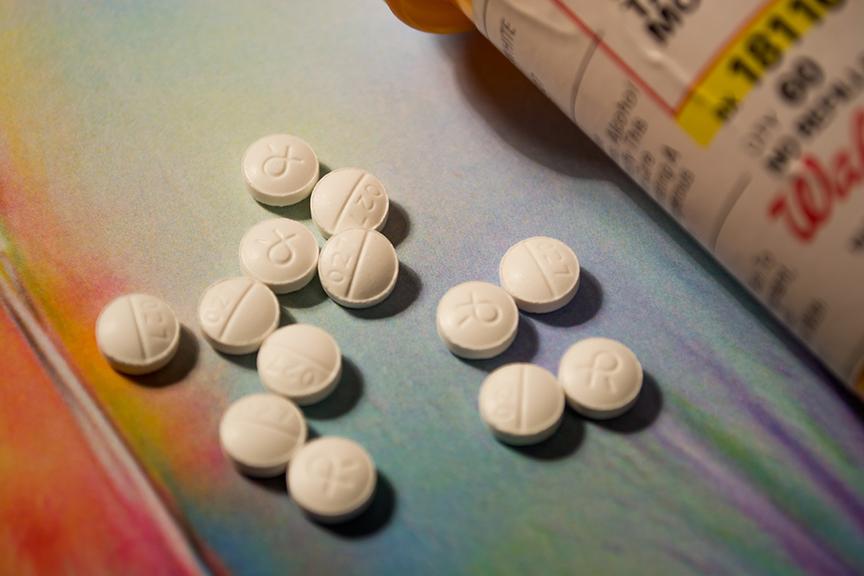Kill the Stigma
There is nothing weird about mental health
November 2, 2016
In high school, people called me “crazy.” Word had gotten out that I was bipolar, and that I had pretty severe anxiety. Kids were cruel. People would see me in the halls and would start to pretend to cry. They would pantomime popping pills. They would call me “psycho” and “mental” and “basket case.” Then they would laugh, and laugh, and laugh.
When I was first diagnosed I was so ashamed. I believed my peers. I believed I was crazy. I believed the stigma that there was something wrong with me.
If you don’t personally struggle with mental illness you might wonder what the big deal is. We all have bad days, right? And in all honestly, I’m happy for those of you who can ask this question. It means you haven’t had days where getting out of bed is physically impossible. It means you haven’t had to convince yourself that the breath-taking pain in your chest is just your anxiety and not a heart attack. It means you haven’t verbally attacked the people you love most in a fit of manic rage.
For the rest of us, however, these problems and more could be as often as a daily occurrence. And it’s more people than you might think. According to the National Institute of Mental Health, a quarter of the US population is living with a mental illness.
Anyone dealing with this can tell you that the physical side effects are often not the worst part of having a mental illness. It’s the stigma attached to it.
In this country (and much of the world) there is a sense of shame in taking care of yourself when your illness isn’t one that’s physically clear. There is a sense of shame that accompanies taking medication and going to therapy. There is a sense of shame in having your illness.
It took years of therapy, medication and practicing self-love to come to terms with myself. Even now, I actively try to avoid conversations about mental illness because I fear that it will come out that I deal with such issues.
The problem with the world is that mental illness is so remarkably misunderstood. Until very recently people with mental illnesses, even as common as postpartum depression, were locked away in mental hospitals and sanitariums. They were given mind-numbing drugs and electroshock therapy. In some truly horrific cases, doctors went so far as to give patients lobotomies.
People think that when you have a mental illness that you’re crazy or unstable. This can be dangerous because it discourages people who could really benefit from getting help. But left untreated, it could be fatal.
That being said, when people do try to receive the treatment they’re often turned away because most insurance plans don’t include mental health coverage.. Therapy and medication are not cheap. A therapist can easily charge upwards of $200 an hour. Pharmaceuticals are not cheap. Prozac, a common anti-depressant, costs $1,225 for 100 pills of the lowest dose.
There’s a simple way to fix this. If people start to realize how normal and acceptable it is to live with a mental illness the stigma will slowly and surely soften its grip on society. If you know someone living with one, offer your love and support if they so need it. But most importantly, don’t judge them. Don’t act cautiously around them. Treat them as you would any human being.
Once the stigma vanishes it may push the pharmaceutical companies to lower medication prices. It may push insurance companies to cover depression like they would a broken leg. Most importantly, it could push people who struggle with mental illness to look for help if they need it. Lifting the stigma could lift up the world, and we need to start that today.
The kids from my high school have changed in my eyes. While they made my life utterly miserable, it’s come out over time that a lot of them were dealing with similar issues. They have started sharing their stories on facebook and reaching out to others who may need help. I use to think they were mean, but now I realize they were hurting too. It doesn’t excuse their actions, but I understand. Mental illness is scary. It’s deep and it’s dark. It’s bone shaking. It’s life-changing.
If someone treated me the same way I was treated years ago, I wouldn’t shrink in the shadows anymore. I would stand up for myself and explain that I am a human being just like them. But I would also keep in mind that they might be hurting too. I would come across as kind and strong, and hope that my simple reaction would help them understand it’s okay to be okay with your mental illness. It’s okay to be proud of who you are.





















Harold A. Maio • Nov 2, 2016 at 12:37 pm
Kill the Stigma ???
No. Never would I lend credence to claimants of a “stigma”.
Educate people who claim one? Of course.